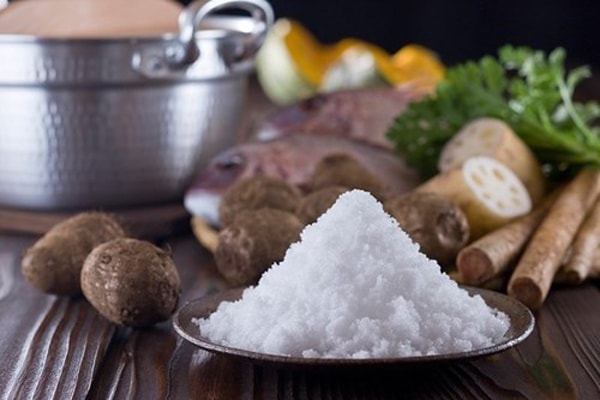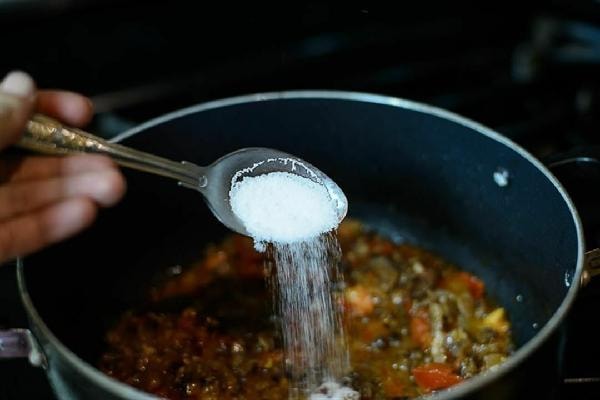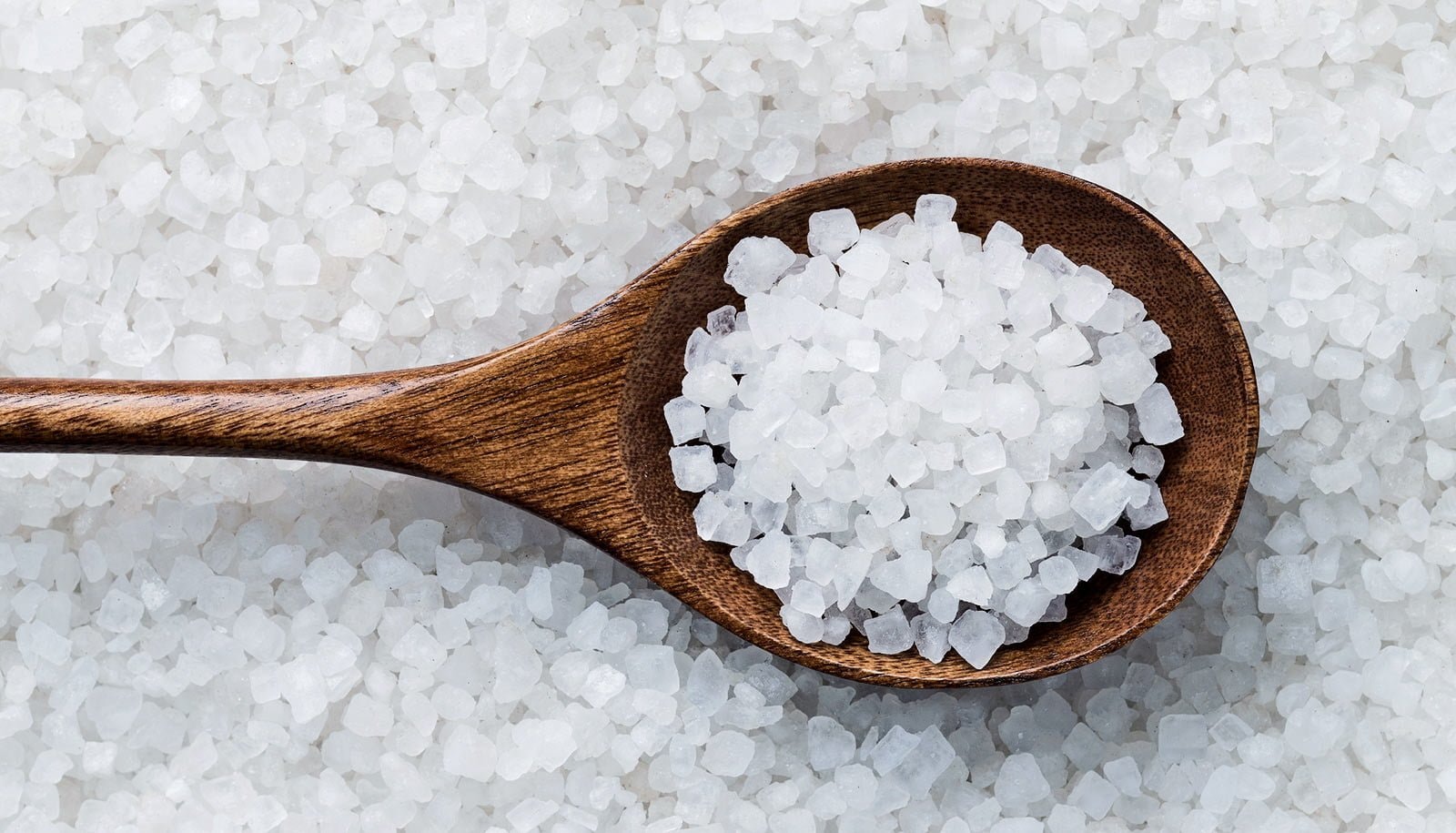5 symptoms and 4 diseases that signal you are eating too much salt
Eating too much salt is harmful to your health, causing many diseases such as high blood pressure, kidney failure, and even stomach cancer.
SaltSalt is an important spice in cooking. And recently, science has proven that when you are stressed, you should eat something a little more salty to feel more comfortable. However, many people consume more salt than necessary and that habit can seriously harm your health.
Before getting to the 5 body symptoms that signal you are abusing too much salt, let's review some common diseases if you consume too much salt:
 |
1. High blood pressure
Numerous studies have confirmed that long-term high sodium diets are closely linked to hypertension.
The main ingredient in table salt is sodium chloride. If there is too much sodium chloride in the blood, the body will need a lot of water to replenish it, which leads to water retention in the body. In order for blood to circulate, blood pressure must increase.
In fact, the real harm of high blood pressure is not the symptoms it causes, but the damage to important organs of the body such as the kidneys, heart, very close to the blood vessels, under great pressure every day. Over time leading to many other dangerous diseases.
2. Kidney disease
Kidney disease is a very common disease and is called “silent killer”. The kidney is the water filter that helps clean the blood in the human body, excreting excess waste.
When sodium levels in the body are high for a long time, the kidneys will work too hard and be under high pressure, leading to kidney failure.
 |
3. Stomach cancer
The hypertonic solution in table salt can cause damage and injury to the stomach lining. One or two injuries will not affect the body, but if the cells are continuously stimulated, it will lead to stomach cancer.
4. Calcium deficiency
When sodium ions in salt are excreted through the kidneys, calcium ions are taken away at the same time. Specifically, for every 2300mg of sodium excreted, 40 - 60mg of calcium will be excreted, meaning the more salt you eat, the more calcium you lose.
To prevent disease, you need to pay attention to 5 symptoms of your body that signal you are abusing too much salt:
1. Dry mouth
When the human body eats too much salt, the body's water and salt metabolism will become unbalanced and the body will show thirst signs such as dry mouth and peeling skin.
2. Slow response
Research shows that people who eat too much salt often have faster brain decline, slower reactions and even cannot think clearly.
3. Swollen fingers
Swollen fingers are most likely related to eating too much salt. At this time, the body will be dehydrated, you will have to drink to compensate, causing the water in the body to not be discharged in time, stagnant causing edema.
4. Headache
A high salt diet is always one of the main causes of high blood pressure, which leads to symptoms such as headaches, dizziness, and bloating.
5. Frequent urination
To expel excess salt from the blood, the kidneys have to work overtime and continuously, eventually causing the phenomenon of always wanting to urinate.
How much salt is enough per day?
 |
WHO recommends that each person should only use a maximum of5g salt/person/day, equivalent to about one teaspoon of salt.
The World Health Organization also recommends that limiting the amount of salt you take in can help you avoid many diseases. Specifically: only 2.3 grams of salt per person per day (one teaspoon of salt) will help reduce blood pressure by 2-8 mmHg.
At the same time, you should clearly distinguish between salt and sodium. Salt is Sodium chloride, which means that salt contains sodium, but they are not the same. Many manufacturers have created this confusion by labeling the salt content of foods as sodium on packaging. This can make many people think they are consuming less salt than they actually are.
For the amount of sodium the body needs, the World Health Organization (WHO) recommends consuming less than 2 grams of sodium per day. The American Heart Association also gives a more cautious recommendation of only consuming a maximum of 1.5 grams of sodium per day, especially for people at risk of cardiovascular disease.


.jpg)


.png)
.png)

